Age of Wonders: Planetfall (the card game) crashes down with a bang
When I reviewed Age of Wonders: Planetfall back in 2019, I never imagined that almost five years later, I’d be reviewing a card game about it. Even more bizarrely, when I received said card game, I never expected it to be as good as it has turned out to be. Age of Wonders: Planetfall is a simple, fast-playing set collection game from Arcane Wonders and Stepan Opalev that is well worth a second glance.
The premise of Age of Wonders: Planetfall is basically the same as that of the videogame. In the far future, humanity has splintered and spread across the shattered universe, ultimately forming six separate factions who begin to develop different cultures. The players each choose one of these factions to represent them in the game, and the setup begins.
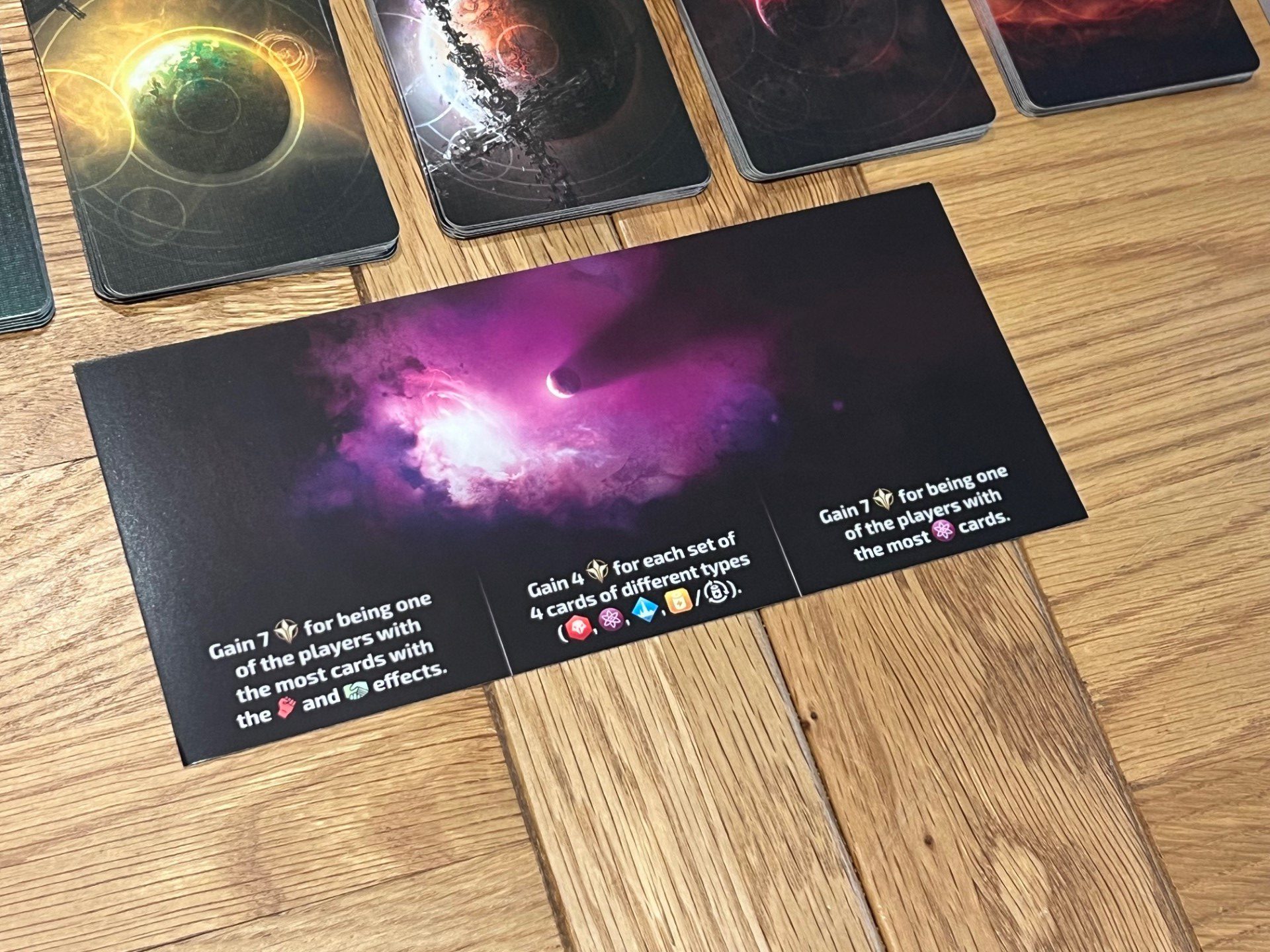
Age of Wonders: Planetfall uses three basic resources to drive player actions, known as Experience, Strength and Energy. Each of these is tracked on your player board, as is your initiative (starting order), your special ability and your Empire Points (also known as VP). There’s no game board as such, but there is a kind of “frame” known as the Operations Board, and this is used to track turn order and it also helps to organise the cards that will be dealt each round.
On that note, when the game begins, the players will deal a number of cards from the current planet deck based on the player count, forming a pyramid of lower, middle and upper-tier cards alongside the Operations Board. These cards will be “occupied” and drafted during the current round, with each player ultimately claiming and resolving two cards from the display for each planet. Any cards not taken are discarded, and then the next deck of planet cards is dealt and drafted in the same way.
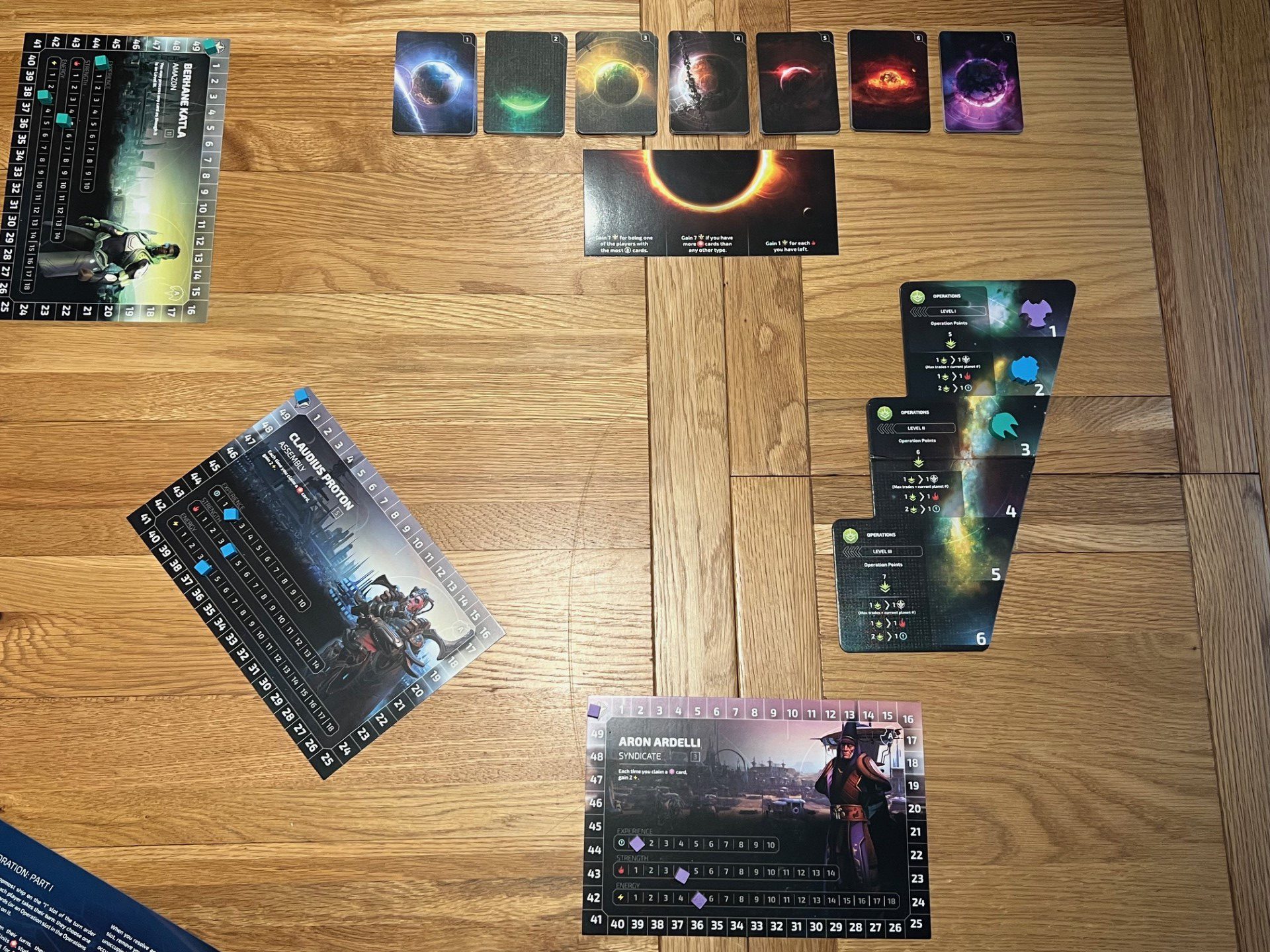
After six rounds of play, the faction with the most empire points will win, but there’s more to Age of Wonders: Planetfall than I’ve let on so far. When a player occupies a card, they simply place their ship on it and then each other player does the same, choosing a different card each time. Cards are then resolved from left to right and top to bottom, and each card may have different resolution conditions based on what tier it is positioned in.
To give an example of this, a player who chooses to occupy the top left-most card in the pyramid will resolve the card first (paying whatever cost is shown in the tier 1 row) and takes the rewards shown along the bottom. They will then place their ship token in the highest turn order slot on the Operations Board and the next player will go. To summarise the flow here, if you act earlier in the round, you’ll spend more resources to resolve your card, but you’ll also appear higher in turn order for the next round.
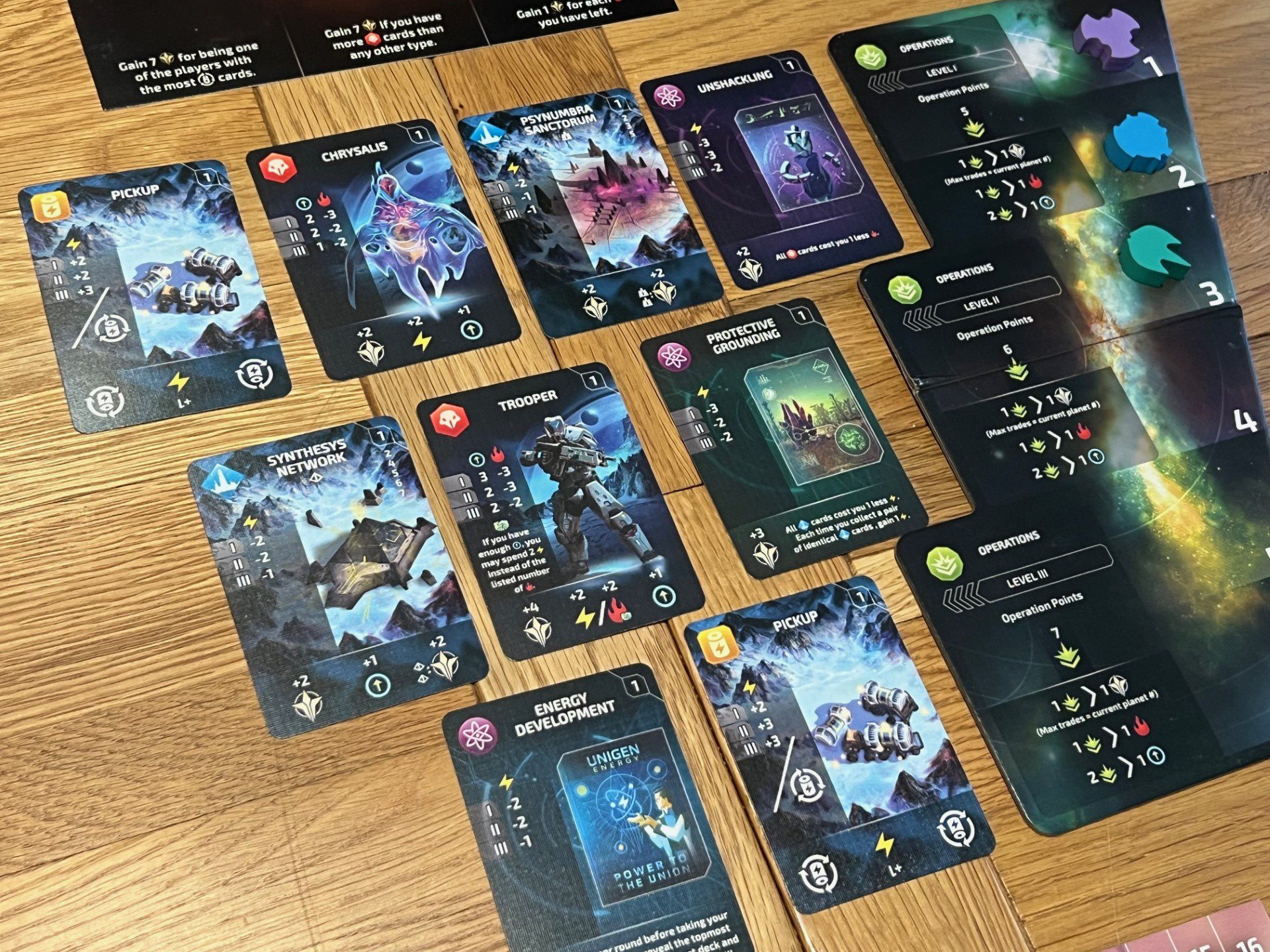
Some cards are, basically, a fight — and you need to spend strength to get a reward. Others demand energy (perhaps to thematically build a structure or similar). Some actually provide resources and cost nothing, but these obviously don’t advance your empire in terms of scoring. What’s nice about Age of Wonders: Planetfall is how clever some of these cards are.
For example, a few of the combat cards have an alternative cost to strength, which simply states that if you have enough experience, you can spend energy to resolve the fight instead. There are few words and no story among the Age of Wonders: Planetfall components, but this mechanic literally tells you that you’re using your command experience and energy to diffuse a fight without needing to resort to violence. I love it when mechanics tell a story, and this is just one example of how Age of Wonders: Planetfall’s simple components do that really well.
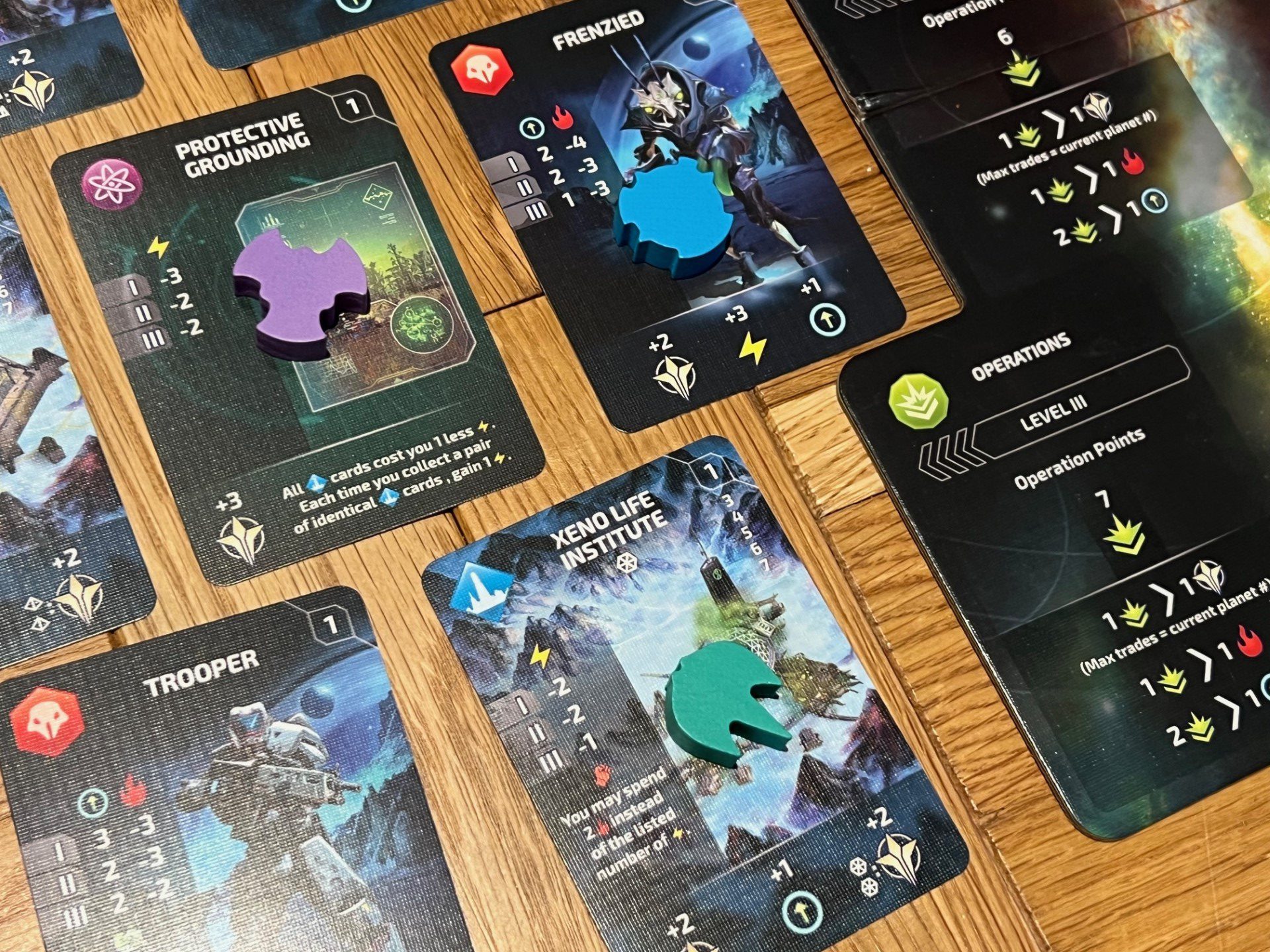
As an alternative to claiming a card, players may also take Operations — which simply means that they place their piece on the Operations board at one of the three levels. The player will earn five, six or seven operations points based on the tier they choose, and they can spend these points on empire points, energy or experience at a one-to-one ratio.
There is a set collection element here as well, with various pairs of cards scoring additional points when secured. Alien landmarks, for example, will often work well in pairs, as do a few other combinations that can even span from one planet level to another. These bonus extra points are worth having, but not so significant that they will win the game on their own, so newer players don’t need to focus too much on them from the outset.
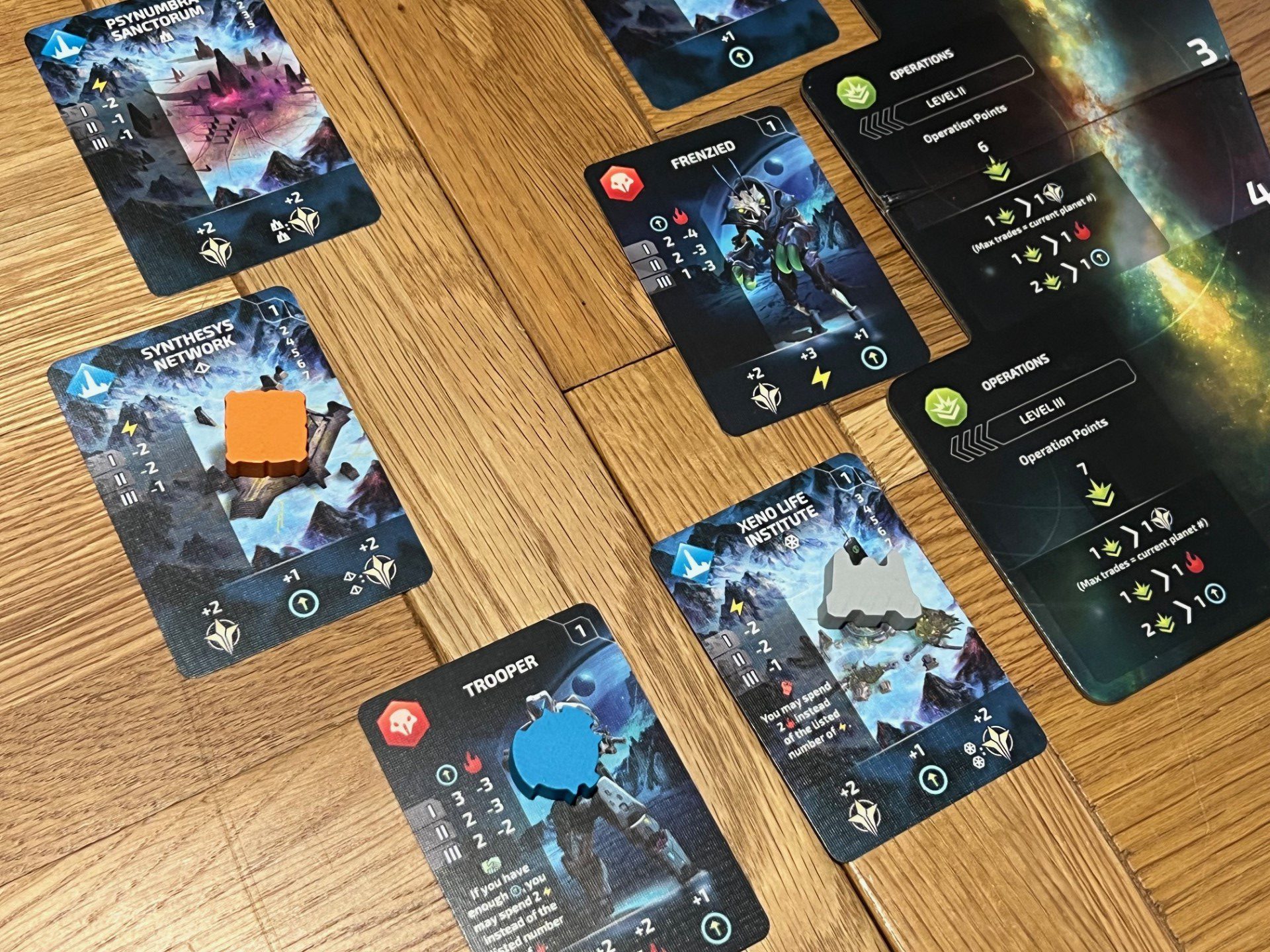
Whilst Age of Wonders: Planetfall supports two to six players, it is arguably best at four in my opinion, although three is absolutely fine and five, whilst stretching it a bit, is still fun. I definitely appreciate that a game like this (which is a serious game and not some kind of filler) is available for up to six players, and as with games like 7 Wonders, Age of Wonders: Planetfall does a decent job of maintaining pace despite a growing player count.
Whilst I think Age of Wonders: Planetfall could probably have had almost any other theme, it does fit pretty well with the licensed IP from the videogame of the same name. It’s always a bit weird to see a relatively small IP reimagined in this way so many years after the core release, but don’t let the videogame link influence you too much either way — simply judge Age of Wonders: Planetfall on its own merit. It is, in short, a clean, simple and fast-paced design with lots of versatility for different player counts and a few variants for age and skill level as well.
You can purchase Age of Wonders: Planetfall from various websites, including this one.
Love both video games and board games? Here’s our list of some fantastic crossover games.
Comments are closed.